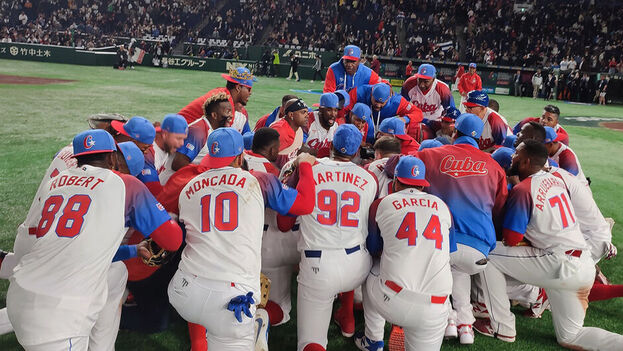
![]() 14ymedio, Pedro Corzo, Miami, 1 April 1, 2023 — They are three independent activities, but when the arts and sports, like any discipline, are developed under a dictatorial, even worse, totalitarian management, such as the Cuban State, the management, individual or collective, is subject to the will of the government.
14ymedio, Pedro Corzo, Miami, 1 April 1, 2023 — They are three independent activities, but when the arts and sports, like any discipline, are developed under a dictatorial, even worse, totalitarian management, such as the Cuban State, the management, individual or collective, is subject to the will of the government.
There will be those who do not understand the protests, which, in other words, are not against the athletes, but against the regime they represent, although as citizens, they also have rights and duties within their community.
I confess that I remember with bitterness those days of death sentences that were carried out in 24 hours, and that many prominent athletes and artists, receiving awards abroad, in their first statements to the press dedicated their awards to Fidel Castro or simply said that he was their inspiration.
The distinctions that athletes receive under the regime are a product of their own efforts, but the Government capitalizes on them for propaganda purposes, and this contributes to disinformation and to the athlete’s dependence on the State. Something similar happens with any scientific advance that occurs in Cuba. They make believe, they disseminate the results, as a genuine progress of the system, not of the nation; even less, of the individuals who with their talent and dedication achieve success.
The totalitarian regime takes credit for any award or recognition to a Cuban who represents the Island. But some do not feel a triumph as something national or as a success that belongs to everyone.
I have participated in protests against the dictatorship at sporting events. I confess that it’s not easy. I have felt like the character of the book The Two Halves of the Viscount, by Italo Calvino, which describes an aristocrat physically divided in half by a cannonball, which results in the contradictory behavior of his two halves.
The situation presented by Calvino in his short novel is complex, similar to that suffered by those of us who face totalitarian regimes that are capable of appropriating the values of a nation. It is true that there are those who do not have problems with their halves; they are whole, and they act as a battering ram without suffering the consequences.
In the early 1980s, a sports competition was celebrated in a stadium in Valencia, Venezuela, attended by Cuban boxers.
It was an intense day. Together with Kemel Jamis, a former political prisoner, and two other compatriots, we appeared on the grounds with a couple of large signs that said, “Welcome Cuban sports brothers” and another, “We condemn Castro-Communist tyranny.” Fortunately, for our safety from the Cuban and Venezuelan henchmen, the National Guard intervened and took us into custody and out of the stadium.
Protesting is a right, especially when people are not assaulted and public and private property are not damaged.
Totalitarianism introduces the citizen to a perennial debate. Consciousness, feelings, interests, politics and ideology face off against each other in a constant discussion, which acutely complicates reaching conciliation. The regime that prevails in Cuba is so absorbing and inclusive that, no matter how hard the individual tries, he cannot escape the influence of the system, unless he absolutely breaks with his roots and what he derives from them.
This perception to some extent is also based on the fact that totalitarianism, beyond the will and doing of each citizen, instilled for decades the certainty that the homeland and Fidel Castro were a single entity, an absolutism that led to the belief that any contrary individual decision would have a negative impact on the values and commitments of the nation.
All this generates an irreconcilable confrontation between the two supposed halves, not only in sports but in similar aspects. It affects everything, even the help you can give to a family member, because the reality is that totalitarianism is like a gigantic funnel that swallows everything.
But what to do? Totalitarianism is a dirty trap that corrodes us. On the Island everything is kidnapped, even our loved ones, and can there be a homeland without a family?
Translated by Regina Anavy
____________
COLLABORATE WITH OUR WORK: The 14ymedio team is committed to practicing serious journalism that reflects Cuba’s reality in all its depth. Thank you for joining us on this long journey. We invite you to continue supporting us by becoming a member of 14ymedio now. Together we can continue transforming journalism in Cuba.
